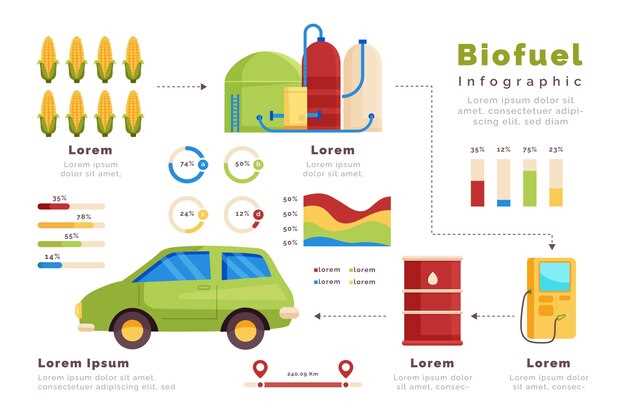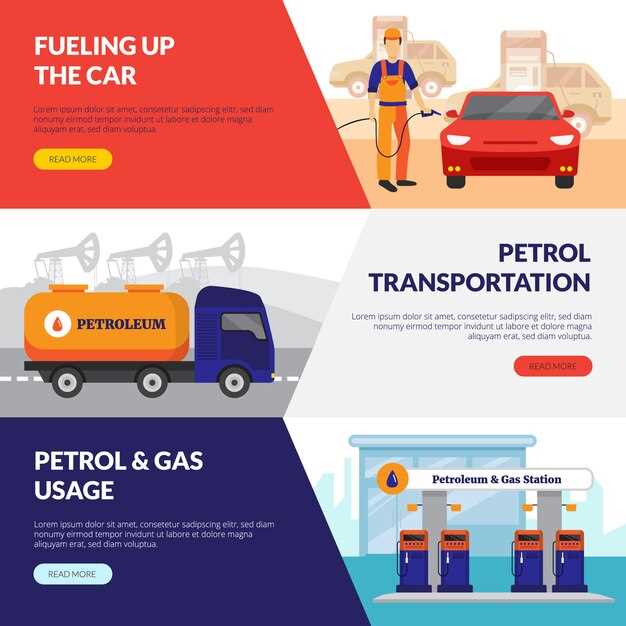
In the ever-evolving landscape of automotive engineering, the choice between gas and diesel trucks remains a pivotal decision for consumers and businesses alike. With each fuel type presenting its own unique set of advantages and disadvantages, a comprehensive understanding is essential for making an informed choice. This article delves into the key features of gas and diesel trucks, shedding light on their performance, efficiency, and overall value in various applications.
Gas trucks are often celebrated for their affordability, lower initial purchase price, and generally quieter operation. Their gasoline engines typically offer quicker acceleration and a smoother driving experience, making them a popular choice for light-duty tasks and personal use. However, when it comes to fuel efficiency and towing capacity, gas trucks may fall short compared to their diesel counterparts.
On the other hand, diesel trucks are renowned for their superior torque and fuel efficiency, particularly in heavy-duty applications such as towing and hauling. These vehicles tend to have a longer lifespan and offer better fuel economy, translating to lower costs over time for owners who frequently use their trucks for demanding tasks. Nonetheless, the higher initial cost of diesel trucks and the potential for increased maintenance expenses can pose significant drawbacks that potential buyers must consider.
This article aims to provide a detailed comparison of gas and diesel trucks, outlining their respective benefits and drawbacks to help readers navigate their options effectively. Whether you’re a small business owner needing a reliable workhorse or an individual seeking a versatile vehicle, understanding the nuances of gas and diesel trucks is crucial for making the best choice to meet your needs.
Fuel Economy and Cost Analysis for Gas vs Diesel Trucks
Fuel economy is a crucial factor when comparing gas and diesel trucks, impacting both operational costs and overall efficiency. Diesel trucks generally offer better fuel economy than their gasoline counterparts. The more efficient combustion process in diesel engines allows them to extract more energy from the same volume of fuel, which is reflected in lower fuel consumption per mile. Typically, diesel trucks can achieve fuel economy ratings between 15 to 25 miles per gallon (mpg), while gas trucks usually fall in the range of 10 to 20 mpg.
The cost of fuel also plays a significant role in the analysis. Diesel fuel is often more expensive than gasoline, yet the increased fuel efficiency of diesel engines can offset this higher price. To provide a clearer picture, consider that if a diesel truck gets 20 mpg and diesel fuel costs $4 per gallon, it costs approximately $0.20 per mile to operate. Conversely, if a gasoline truck achieves 15 mpg at $3.50 per gallon, it would cost around $0.23 per mile. This variation exemplifies how fuel prices and mileage can heavily influence operating costs.
Ownership costs extend beyond fuel economy and expenses. Diesel trucks typically cost more upfront due to their more complex engine design, requiring advanced manufacturing and more durable components. However, diesel engines often have longer lifespans and can handle more demanding workloads. Thus, over time, the total cost of ownership may favor diesel trucks, particularly for those requiring long-term, heavy-duty use.
Maintenance costs should also be factored into the equation. Diesel engines may require more expensive repairs and maintenance, particularly for components such as turbochargers and fuel injectors. Gas engines are generally easier and cheaper to maintain, making them appealing for everyday use or lighter applications.
In conclusion, fuel economy and cost analysis of gas versus diesel trucks involve evaluating initial purchase price, operational efficiency, and long-term expenses. While diesel engines typically provide superior fuel economy and durability, gas engines often present lower initial costs and maintenance expenses. Ultimately, the choice between gas and diesel will depend on specific use cases, budget constraints, and individual preferences related to performance and efficiency.
Maintenance Requirements and Longevity of Each Truck Type

The maintenance requirements for gas and diesel trucks differ significantly due to their distinct engine designs and fuel types. Gas trucks typically have lower maintenance costs and fewer oil changes due to their simpler engine components. However, they may require more frequent servicing of ignition systems, fuel injectors, and exhaust systems. The overall lifespan of gas trucks tends to be shorter, averaging around 150,000 miles.
In contrast, diesel trucks are generally more complex but are built with durability in mind. They often require more frequent oil changes and maintenance of the fuel system, including filters, injectors, and turbochargers. Diesel engines are designed to withstand higher levels of stress, leading to a longer lifespan, which can exceed 300,000 miles with proper care. The heavier components, such as the engine block and transmission, contribute to this longevity.
Another aspect influencing maintenance is the cost of parts. Diesel truck parts can be more expensive due to their specialized nature, particularly for components like turbochargers and intercoolers. However, the extended lifespan can balance these costs over time. Gas trucks, on the other hand, may have cheaper parts and simpler repairs, making them easier to maintain for the average user.
Fuel quality also plays a significant role in maintenance needs. Diesel engines benefit from higher fuel efficiency, but they require specific grades of diesel to prevent issues like injectors clogging. Gas engines are less sensitive to fuel quality but can develop issues over time without proper fuel system cleaning.
Overall, while gas trucks may provide easier and less expensive short-term maintenance, diesel trucks offer superior longevity and durability, making them a more cost-effective choice for long-term ownership despite higher initial maintenance costs.
Performance Factors: Towing Capacity and Payload Considerations

When comparing gas and diesel trucks, two critical performance factors stand out: towing capacity and payload capability. These specifications significantly impact the overall utility and effectiveness of a truck in various applications, from hauling trailers to transporting heavy loads.
Diesel trucks are widely recognized for their superior towing capacity. This advantage stems from the higher torque produced by diesel engines, especially at lower RPMs. The increased torque allows diesel trucks to handle heavier trailers and loads more efficiently. For instance, many heavy-duty diesel trucks can tow upwards of 20,000 pounds, making them ideal for commercial uses, such as towing large trailers, RVs, and construction equipment.
On the other hand, gas trucks generally offer lower towing capacities, with most capable of towing between 7,000 to 12,000 pounds. Although some newer gas models are closing the gap due to advancements in engine technology, they still fall short in terms of torque output compared to their diesel counterparts. This limitation may affect performance when attempting to tow heavy loads over long distances or challenging terrains.
Payload considerations also play a significant role in truck performance. Payload refers to the maximum weight a truck can carry in its bed, excluding the weight of the vehicle itself. Diesel trucks typically have higher payload capacities because of their robust frames and suspension systems designed to handle substantial weight. Many heavy-duty diesel models can support payloads exceeding 3,000 pounds.
Gas trucks, while capable, often have lower payload limits. Varying between 1,500 and 2,500 pounds, gas trucks may struggle with heavier loads, particularly in commercial scenarios where payload is a primary concern. However, gas engine advancements have improved payload capabilities, making them suitable for less demanding applications.
In summary, if towing capacity and payload are primary considerations for your truck choice, diesel engines generally provide superior performance. However, factors such as cost, fuel efficiency, and intended use should be considered when making a final decision. Understanding these performance factors can guide potential buyers in selecting a truck that meets their specific needs.

